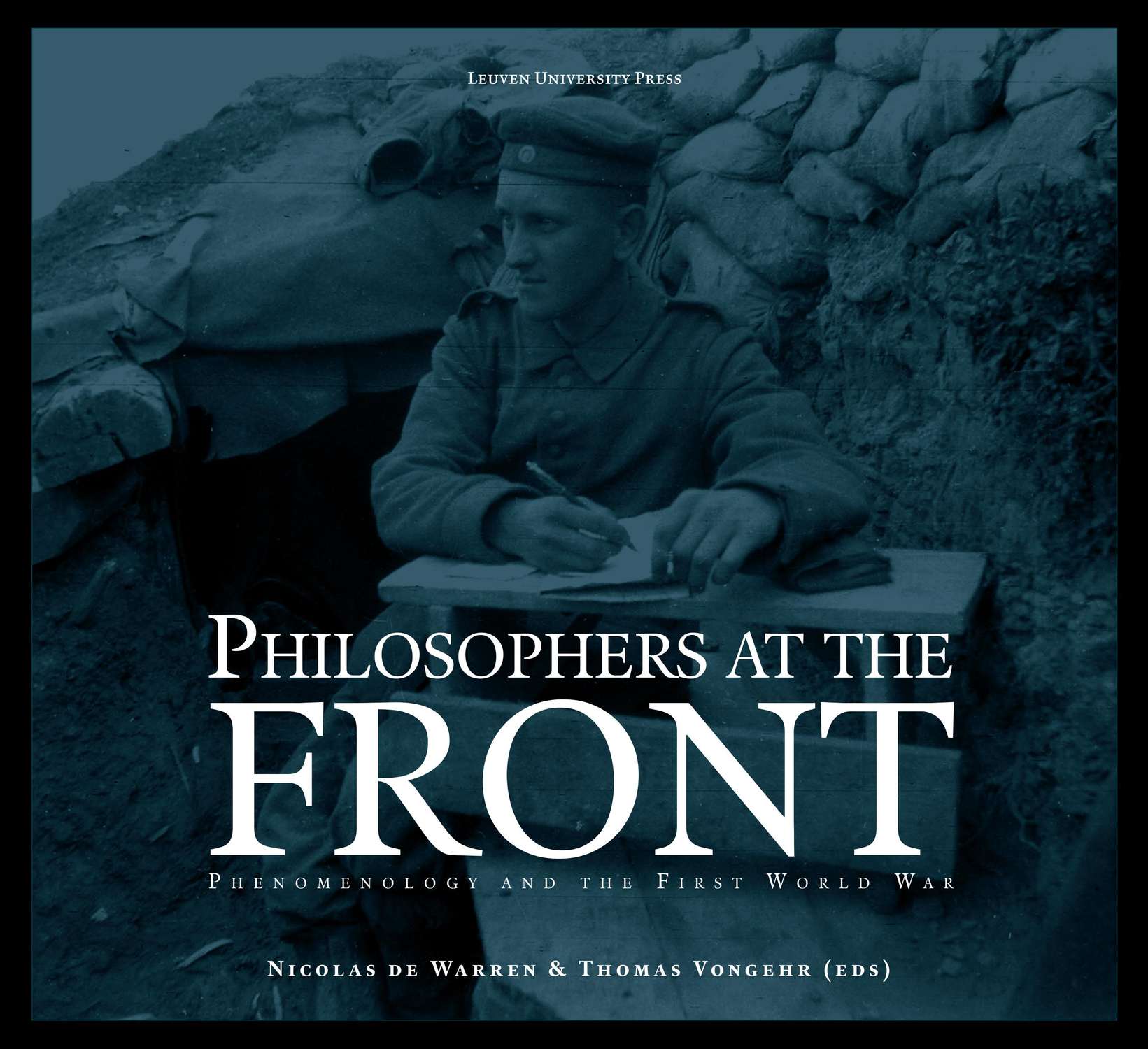
Philosophers at the Front
Phenomenology and the First World War
Edited by Nicolas de Warren and Thomas Vongehr
Regular price
€49.50
(including 6% VAT)
Sale
Edited volume - hardback
An exceptional collection of letters, postcards, original writings, and photographs
The First World War witnessed an unprecedented mobilization of philosophers and their families: as soldiers at the front; as public figures on the home front; as nurses in field hospitals; as mothers and wives; as sons and fathers. In Germany, the war irrupted in the midst of the rapid growth of Edmund Husserl's phenomenological movement – widely considered one of the most significant philosophical movements in twentieth century thought. Philosophers at the Front offers a documentary history of phenomenology in the First World War. Through an exceptional collection of primary source materials (letters, postcards, original writings, photographs) from the Husserl Archives in Leuven, the Bayerische Staatsbibliothek, and the Archives of the University of Göttingen, the complex narratives of how the war affected the lives and thought of central figures in the phenomenological movement are charted. Key figures such as Edmund Husserl, his sons Wolfgang and Gerhart, Max Scheler, Edith Stein, Adolf Reinach, Martin Heidegger, and others are included in this collection of materials.
The volume includes reproductions of original material, as well as German transcription of all texts and their English translation.Philosophers at the Front
Chronology of Significant Dates
The Husserl Family
Edmund
Husserl (1859-1938)
Malvine
Husserl (1860-1950)
The
Husserls in Time of War
Elisabeth
(„Elli“) Husserl (1892-1981)
Gerhart
Husserl (1893-1973)
Wolfgang
Husserl (1895-1916)
Documents
from the War
Letters of
Condolence
Philosophers in War
The
“Göttingen Philosophical Society”
Winthrop P.
Bell (1884-1965)
Hedwig
Conrad-Martius (1888-1966)
Theodor
Conrad (1881-1969)
Johannes Daubert (1877-1947)
Moritz Geiger (1880-1937)
Erich von Gündell (1854-1924)
Martin
Heidegger (1889-1976)
Gustav
Hübener (1889-1941)
Fritz
Kaufmann (1891-1958)
Kurt Lewin
(1890-1947)
Hans Lipps
(1889-1941)
Karl Löwith
(1897-1973)
Dietrich
Mahnke (1884-1939)
Arnold
Metzger (1892-1974)
Friedrich
Neumann (1889-1978)
Max Scheler
(1874-1928)
Edith Stein
(1891-1942)
The Fallen Ones
Rudolf
Clemens (1890-1914)
Waldemar
Conrad (1878-1915)
Fritz
Frankfurther (1889-1914)
Emil Lask
(1875-1915)
Adolf
Reinach (1883-1917)
Heinrich
Rickert jr. (1891-1917)
Hermann
Ritzel (1880-1915)
Select
Bibliography
List of
Sources
Index of Names
Colophon
Format: Edited volume - hardback
Size: 220 × 245 × 25 mm
286 pages
black & white
ISBN: 9789462701212
Publication: April 25, 2018
Languages: English
Stock item number: 121995
Thomas Vongehr studied philosophy in Munich and obtained his PhD from Ludwig-Maximilians-Universität Munich in 1995. Since 2002, he is assistant at the Husserl Archives at KU Leuven.
Peter Hoeres, Militärgeschichtliche Zeitschrift, 78/2 (2019): 521–523, https://doi.org/10.1515/mgzs-2019-0094
This is a remarkable book. The curatorial and editorial strategy deployed does not seek to fuse these materials into some overarching narrative or explanation, but lets them speak for themselves, without any undue expectation that what they say will make complete sense. The book instead collects the fragmentary, archival remains of a group of individuals grappling with the impact of a disaster that took years to unfold, and in which much remained misunderstood, unspoken, and undecided, both during and after. Anyone seeking to better understand the philosophical legacy of classical phenomenology in light of the historical context of the First World War will find in this volume an invaluable resource.
James Dodd, Notre Dame Philosophical Reviews, 2019.04.26
In dit prachtig vormgegeven boek zijn unieke documenten
verzameld die het leven van Edmund Husserl en zijn familie, vrienden en
studenten weergeven ten tijde van de Eerste Wereldoorlog. In het boek wordt
duidelijk hoeveel impact deze oorlog had op het leven van Husserl en zijn
omgeving en hoeveel jonge mensen sneuvelden in de strijd. [...] Het boek is een bundeling van brieven, briefkaarten en
manuscripten die op unieke wijze inzicht geven in de enorme impact die de
oorlog had op het academische leven en het persoonlijke leven van Husserl en
zijn omgeving."
Martine Berenpas, Tijdschrift voor Filosofie, 80/2018, doi: 10.2143/TVF.80.3.3285689
Toon Horsten, Knack nr 32, 8 augustus 2018
